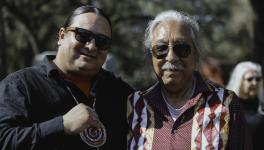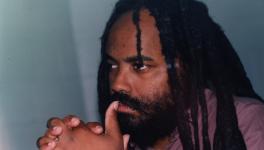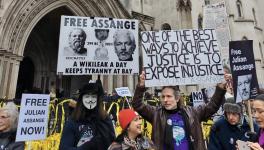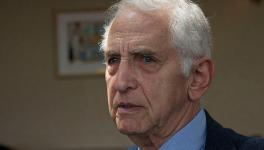Witnesses in Assange Trial Say Complete Isolation Very Likely in US
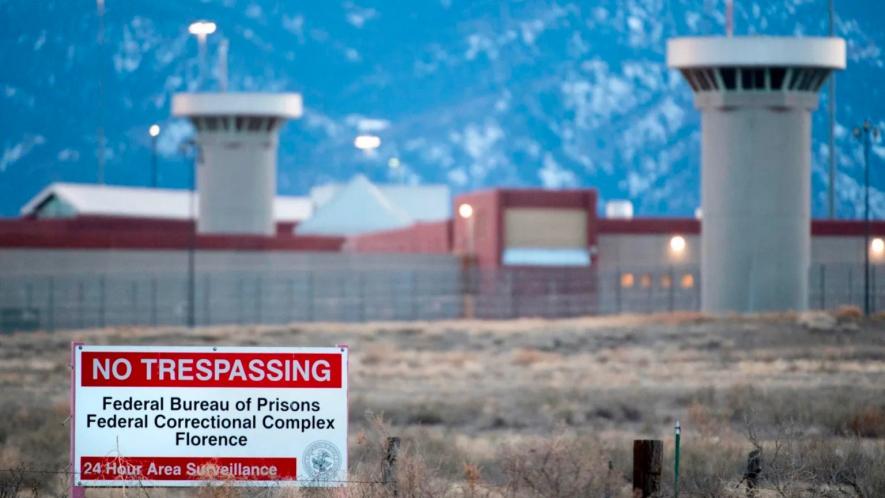
As the final week of the extradition trial of Julian Assange continues, expert witnesses presented by the witness have focused on the treatment Assange is likely to get once extradited. Maureen Baird, who worked in the US Bureau of Prisons (BOP) for two decades, and Lindsay Lewis, a lawyer who represented Abu Hamza, told the court on September 29, that Assange is very likely to be put under effective solitary confinement, once he is extradited.
Baird’s and Lewis’ testimonies challenge the claims made by the prosecution witness, US attorney Gordon Kromberg. In a submission made to the court yesterday, Kromberg argued that Assange would not be subjected to inhumane conditions and that even if he were isolated he would have contact with other inmates.
Baird, who has worked as a prison designator, stated that considering the nature of the charges against Assange, the federal administration through the Department of Justice and the Central Intelligence Agency are likely to put Assange under Special Administrative Measures (SAMs).
Elaborating on SAMs, Baird stated that during the period that she served in the prison system, she saw inmates being put under 24-hours long isolation every day with no human interactions. She added that inmates are only allowed one phone-call every month, to be scheduled two weeks in advance and under complete supervision 30-minutes.
Baird also said that the conditions of the inmate under SAMs is nothing less than “degrading and desolate” and that despite extensive studies and evidence to show the extent of psychological damage it does on prisoners, the BOP continues to use it on prisoners.
ADX Florence
On the trial days 15 and 16, both prosecution and defense witnesses have agreed that it is highly likely that Assange will be held at ADX Florence in the state of Colorado, notorious for its isolation units, after his trial in the US.
Joel Sickler, a lawyer with the Justice Advocacy Group and representing several inmates at ADX Florence, testified yesterday that the isolation units, called the X Block, contain cells that he described to be little more than the size of a parking space. Colombian political prisoner Simón Trinidad has been held in ADX Florence for over 15 years and has consistently denounced the degrading and inhumane conditions of isolation. Despite his long tenure at the prison, Trinidad has not been allowed to interact with other inmates and has not even been permitted to learn English.
Baird, Sickler, Lewis and also Yancey Ellis, a judge advocate representing several inmates in Alexandria Detention Center where Assange is expected to be held before his trial, have called out Kromberg’s statements that suggested “recreational” and “therapeutic” activities for inmates at ADX Florence.
“For anyone to suggest that an inmate assigned under SAMs would be able to participate in group counseling is baffling to me,” Baird said. Sickler also disputed Kromberg’s statement that there will be adequate mental health counselling available at the facility. “Any suggestion to this Court that he will be fully evaluated and assessed for medical or mental health conditions is misleading.”
Ellis elaborated yesterday that the supermax prison does not have a full-time doctor, but only a part-time psychiatrist. The extent of mental health care is that a social worker or counselor comes around to check on you every once in a while to ensure basic functioning,” he said. He also stated that the prison’s only suicide prevention measure in place to physically restrain the inmate by putting them in a “suicide prevention suit” that immobilizes the arms.
SAM: a punitive measure with no legal recourse
SAMs are imposed in US prison on the orders of federal officials, and seek to completely block the inmates’ communication with other prisoners or human beings. According to Baird, the purpose of “assigning SAMs is to restrict a person’s communication and the only way to accomplish this is through isolation.”
Lawyer Lindsay Lewis refuted Kromberg’s statement that only those who pass a medical examination are put under SAMs in reference to the legal recourse available to prisoners. Lewis pointed out that Abu Hamza (Mustafa Kamel Mustafa), convicted of inciting hate, passed the medical exam despite being a double amputee and partially blind because of diabetes.
Both Lewis and Sickler also stated that the redressal mechanism against SAMs is almost non-existent. Lewis pointed out that inmates have to first go through an administrative remedy process, before they can approach the court to get SAMs removed. She stated that there has not been any instance of an inmate securing redressal under administrative remedy process.
Sickler also pointed out that the judicial processes are not enough either. He stated that he has appealed against nearly a 1,000 SAMs in the court, and could only secure redressal in nothing more than a dozen cases.
This is the last week of Julian Assange’s extradition trial which has taken place at the Old Bailey Court in London, UK. Last week judge Vanessa Baraitser announced that a decision will probably not be made until January 2021.
Courtesy: peoples dispatch
Get the latest reports & analysis with people's perspective on Protests, movements & deep analytical videos, discussions of the current affairs in your Telegram app. Subscribe to NewsClick's Telegram channel & get Real-Time updates on stories, as they get published on our website.










